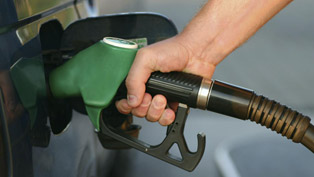Are Company Car Drivers the worst?
Following the findings in a recent survey, company car and business owners are more likely to prove careless than private vehicle owners. The research carried out recently by the Institute of Advanced Motorists in Britain concluded many shocking results as part of their IAM Drive and Survive campaign.
Whilst discriminating against company car drivers as a whole is a vast sweeping generalization, certain precautions need to be taken to improve the safety of the offenders and the larger motoring public. The results of the survey concluded several recurring issues, as reported below.
1 - Lack of basic maintenance.

Most readers will already be primed with the importance of carrying out regular checks to their vehicles, particularly during extreme weather conditions and the winter months. Between 54 and 61 per cent of private owners interviewed displayed a positive attitude towards regular maintenance and safety checks for their vehicle. On the contrary, only between 20 and 26 per cent of business drivers exemplified a similar outlook. Needless to say, basic checks on washer fluid, oil and tire pressure are essential to ensure a safer motoring environment. A change in attitude will save companies more money on the whole, especially in combination with selecting more efficient and reliable replacement tires. Clearly too many participants rely solely upon the vehicle's electronic warning system and annual safety checks in preference to voluntary pre-emptive safety checks.
2 - Speeding.

Jeremy Clarkson might have once quoted: "Speed has never killed anyone. Suddenly becoming stationary, that's what gets you." Indeed true according to the laws of physics, however speeding in built up areas provides hazards when emergency braking is necessary. The survey astonishingly found that 17 per cent of company driver were more likely to break the speed limit in their work vehicles, by comparison to 11 per cent of leisure motorists. Furthermore, only 31 per cent of participants claimed to never break the imposed limits. Many will shun the evidence on the basis that no respectable employee would admit to speeding whilst clocked in at work. Although these figures still demonstrate a 6 per cent difference in attitudes towards committing these offences. What this translates to in real world driving can only be left to the imagination.
3 - Fuel Efficient Driving.

Both business and private owners should take into consideration the cost of fuel whilst using their vehicle. Both basic maintenance and respecting speed limits creates a positive impact on your fuel bill. Clearly, the all-expenses paid environment for company car drivers creates a negative impact on the consciousness of fuel efficient driving, with only 60 per cent acknowledging the need to respect the cost and environmental impact. Private owners demonstrate far more consideration, with a respectable 73 per cent of participants practicing fuel efficient driving.
4 - Damage and Accidents.

According to the research, company car drivers are 25 per cent more likely than private users to find themselves involved in a minor accident, with a third of fatal and serious accidents involving business users. Of course the fiscal impact is worrying for any enterprise, let alone the more important human cost. IAM's Drive and Survive campaign recommends that companies focus on creating a greater awareness of these issues to help to provide a safer working environment for their staff - Indeed, "People are a companies' biggest asset," says IAM Drive & Survive's Chief Executive Simon Best.
Conclusion.
The evidence provided demonstrates the need for awareness. Safe motoring relies upon basic vehicle maintenance, respecting speeding laws, fuel efficient driving and a positive attitude.
"Our findings have highlighted a serious disconnect between the driver and their level of responsibility for the vehicle they drive," said Simon Best, "It seems that not owning the vehicle reduces the driver's desire to use it in the safest and most fuel-efficient manner, as well as distancing them from the responsibility of checking their vehicle is road worthy."







